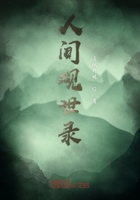China’s national strategy to promote GM crops aims to reap dividends from the lucrative seed market. Will it work out?
By Yu Xiaodong and Pang Qinghui
Given the strain that rapid urbanization, a still-expanding population and environmental deterioration have placed on China’s shrinking arable land, the nation’s food security has always been top of the political agenda. The controversies surrounding genetically modified (GM) foods, long debated in the West, have traditionally held little sway. However, the discovery of the large-scale commercial planting of two strains of GM rice in Hubei Province following the issue of their safety certificates by the Ministry of Agriculture (MOA) in August 2009 has catapulted the GM issue to the forefront of China’s agricultural debate. Although the Agriculture Ministry later announced that safety certificates only approved the two strains for experimental planting, ruling the Hubei cultivation illegal, many are concerned that GM crops have already begun to trickle into China’s food chain, threatening the nation’s food security and even public health.
A National Strategy
Actually, China has long looked to GM technology to guarantee the country’s future food security. In 2008, Chinese Premier Wen Jiabao publicly endorsed GM crops in an interview with Science magazine “I strongly advocate making great efforts to pursue transgenic engineering,” he said.
In July 2008, China approved a 13-year, 24 billion yuan (US3.5bn) investment into research and development of GM crops and livestock. By contrast, a mere 180 million yuan (US26.4m) was allocated to traditional breeding programs for the same period.
To many, the rationale behind such a national strategy goes beyond feeding 1.3 billion people, and in fact is designed to protect China’s vulnerable seed market from powerful international corporations.
After the opening of the seed market in 2000, multinational seed corporations have prospered in China, leaving local companies struggling to compete. Over 8,000 Chinese seed companies constitute a mere 5 percent of China’s domestic seed market, with the combined total sales revenues of China’s top 20 seed companies trailing those of the US multinational Monsanto alone.
According to the Deputy Director of the State Intellectual Property Bureau Li Yuguang, foreign enterprises controlled more than 50 percent of China’s vegetable seed market by 2009, with 80 percent of all profits from China’s vegetable seed market going abroad.
With a huge shortfall in research capabilities in the traditional domestic seed market, many argue that China’s only chance to catch up is to focus on the newly emerged GM food industry. Two specific crops have informed China’s national strategy on GM; cotton and soybeans.
In 1996, Monsanto started to commercialize a newly developed pest-resistant GM cotton in China. By 2004, Monsanto controlled 70 percent of China’s cotton seed market. In response, China launched its own seed development program resulting in a domestically engineered variety of GM pest-resistant cotton in 1997. In the following years, Monsanto’s market share was displaced. Currently, 70 percent of all cotton seeds planted in China are genetically engineered, and over 90 percent are domestic breeds.
This homegrown success story was widely praised by the Chinese media. “This secures the livelihood of China’s 300 million cotton farmers and protects our national interests,” wrote one report, referring to Monsanto’s departure as a “great victory” in “an economic war between a nation and a corporation.”
Soybeans, on the other hand, a native crop of China primarily used as a source of cooking oil, presents a different story. Cheap imported GM soybeans have made China, formerly the world’s largest soybean exporter, to the world’s largest importer since 1995. Currently, China imports more than 70 percent of its soybeans (30 million tons), most of which are GM soybeans with higher yields that produce more oil, and have lower processing costs. In addition, foreign companies now own shares in 64 of China’s 97 major soybean processing companies, representing 80 percent of the country’s total capacity.
Many consider China’s dependence on imported soybeans a threat to national food security and have urged the government to address the problem. While activists argue an outright ban on the use of GM soybeans and their byproducts in foods following the example of the European Union, others argue for a more open-minded attitude to GM technology.
“Our failure lies in sticking to traditional practices and not competing with imported GM soybeans.” wrote Sun Yi, a member of the Technology Committee under the Agriculture Ministry, in the Guangming Daily.

![[欧洲]中世纪教育思潮与教育论著选读(上)](https://i.dudushu.com/images/book/2019/09/28/055751000.jpg)











